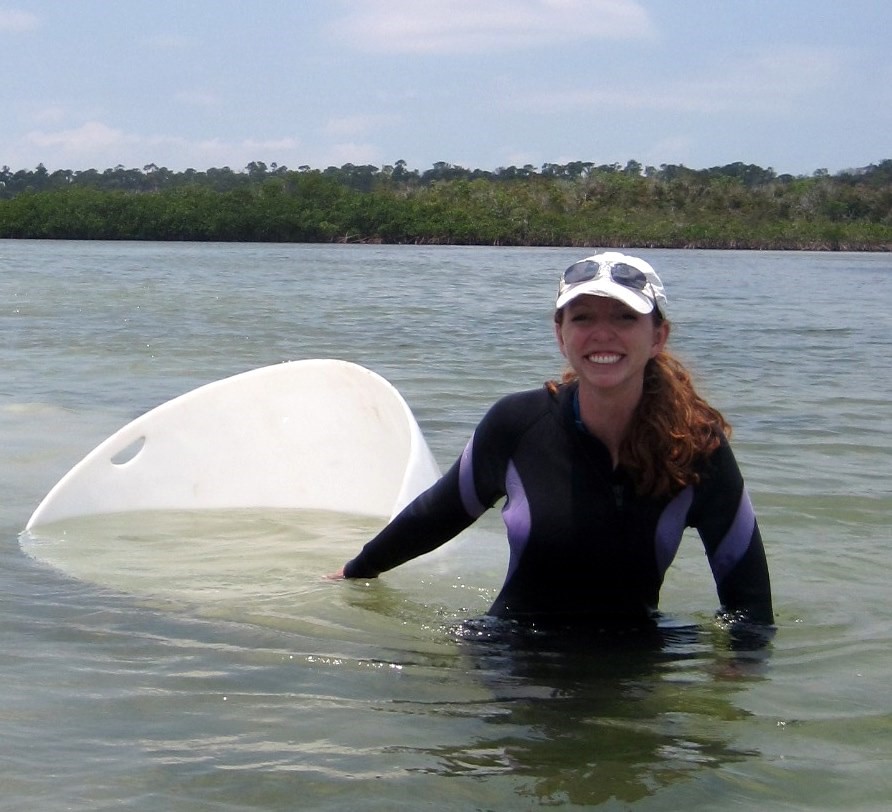We sat down with our newest faculty member, Dr. Lauren Yeager to talk about her research and how she continuously feeds her curiosity about the marine environment.
 Dr. Lauren Yeager is the newest addition to the Marine Science Department and she brings a new marine ecology expertise to the program. Courtesy photo.Dr. Lauren Yeager
Dr. Lauren Yeager is the newest addition to the Marine Science Department and she brings a new marine ecology expertise to the program. Courtesy photo.Dr. Lauren Yeager
Field of Research: Marine Ecology
Tell us a little bit about yourself.
I grew up in St Petersburg, Florida. I’ve been interested in marine biology since I was a little kid. I moved to the Marine Science Institute this August with my two year son and husband. Before coming here, I was recently at the National Socio-Environmental Synthesis Center based at the University of Maryland.
How did you decide you wanted to pursue marine science?
I think my parents were great at exposing my sister and me to it. In Florida, we lived near the water. They took us to the beach and we went snorkeling all the time. We were in marine science summer camps since elementary school. Actually my sister is also a marine ecologist, so I guess our parents got us both into it.
Please tell us a little bit about your research.
I am an ecologist and I primarily study how coastal animal (fish and invertebrate) communities are formed and change. In particular, I try to understand how humans may be impacting coastal ecosystems by removing species (e.g., through overfishing) and changing environmental conditions (e.g., through coastal development and climate change). I often create food web models of coastal habitats to understand what important food and energy resources are for fishes and how food webs may be changing. I am also interested in how the pattern of habitats within estuaries affects their value for fishes, and whether factors like habitat fragmentation or species range expansions, like mangrove encroachment into salt marsh, affect marine biodiversity.
Why did you choose UTMSI?
I really liked that the other faculty have complementary interests and I’m excited for the collaborations that will occur. I was also interested in being close to a national estuarine research reserve and having access to estuarine environment that I can work in and create a strong local research program. The species range expansions that are occurring here, like the black mangrove, are particularly interesting. This is a prime place to do research to understand how the coastal environment is responding to changes in climate.
What’s been the greatest reward of doing research?
Securing a faculty position is like seeing all your hard work has paid off. The great thing with academia is that you have the opportunity to explore things that are interesting to you. You can continuously feed your curiosity. I think that is super rewarding. What other career lets you get to do that?
If you were a marine organism what would you be and why?
I guess a shark or top predator so I wasn’t worried about being eaten all the time. When you think about food webs all the time, you really realize how risk can change behavior. So much of what marine animals do is shaped by behavior and risk - it sounds stressful.
Lauren Yeager is an assistant professor at The University of Texas Marine Science Institute. She received her Ph.D. in 2013 from Florida International University and has held several post-doctoral fellow positions before moving to Texas this summer.